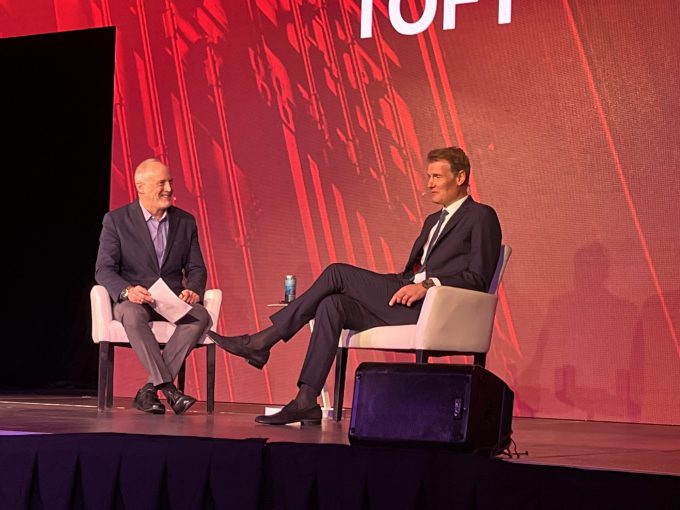Multiple factors return Rotterdam to top of Europe's box chart
Factors: congestion, omissions and land side

The fundamentals that caused the capacity crunch and sent global shipping rates skyrocketing have not changed, leaving the logistics industry and global supply chains susceptible to another economic shock, according to MSC CEO Soren Toft.
He told a packed auditorium at the TPM conference in Long ...

Comment on this article